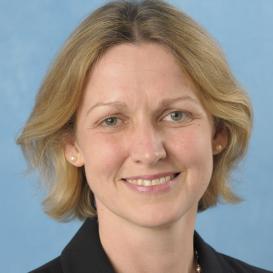Land Economy
Fact File
Land Economy is a multi-disciplinary social science degree, focussing on the study of economics, business and law and, in particular, their relationship to the environment around us.
Land economists enter a variety of careers, in both public and private sectors. Career prospects are exceptionally good, with careers in management consultancy, property (surveying) and finance (commerce, banking, insurance) being especially popular. Graduates also go on to be lawyers, economists and civil servants, and work for international and national agencies, in conservation and environmental protection, in local authorities and financial institutions.
The degree in Land Economy provides full exemptions from the written examinations of the Royal Institution of Chartered Surveyors (RICS) and also exemptions from certain of the subjects for the Common Professional Examination offered under the auspices of the Law Society.
In the first year students are given a thorough grounding in the two primary disciplines (law and economics). In addition they study accounting and data evaluation.
In the second year students start to apply their economics and law to issues and problems relating to land and property, spatial analysis and the environment.
The third year offers greater scope for specialisation, particularly in the more vocational aspects of Land Economy: for example, real estate valuation, landlord and tenant law, urban and environmental planning, development economics, agriculture and rural development. In addition, there is a compulsory dissertation, carrying 20% of the examination marks.
Land Economy is primarily a three year degree. However, it is also possible to read it for one or two years, either before or after another Tripos subject (for example, Economics, Geography, Archaeology and Anthropology or Law). Equally, it is possible to transfer to another Tripos at the end of the first or second year course in Land Economy (for example, to Management Studies).
Teaching is based on programmes of lectures and supervisions (small group tutorials). In addition some subjects require project work and role play.
Lectures are geared specifically to the requirements of the examination, with two lectures per subject per week. During supervisions (held fortnightly for each subject) students are encouraged to discuss the philosophy and underlying rationale of decisions and policies with respect to land, property and the environment, taking into account institutional, political and social influences as well as those derived from law, economics and business. Supervisions, in groups of between two and five, usually take place in the Department rather than the College, with University teachers and researchers who are often Fellows of other Colleges.
More details about the Land Economy course can be found on the Department of Land Economy website.
Magdalene aims to admit two to three Land Economists each year, and in recent years with have received anywhere between six and nine applications per place.
The College is fortunate to have a benefaction (from Fred Cleary, an Honorary Fellow 1976-84) to support study of the subject (e.g. field trip and travel expenses), and College Scholarships are awarded on the basis of University exam results.
Since the Land Economy Tripos is an inter-disciplinary course, you need to be passionate, open-minded and curious about the wider aspects of the built environment including environmental issues, legal framework and economic policy. You should be curious about the potential impact of economic activity on the natural and built environment and the likely environmental, financial and social cost involved. The course is designed to accommodate those who have not studied economics before but proceeds to more challenging material. The Land Economy Tripos aims to give students a rigorous foundation in economics as well as the intellectual tools to take the applied economics courses in Parts IB and II of the Land Economy .
Please refer to the University of Cambridge Land Economy page for further information.
Applicants for Land Economy are drawn from a wide variety of academic backgrounds. Students will find a Mathematics A-level helpful and ideally students will be working towards an Economics and/or Geography A-level. Students can have a background in either the Arts or the Sciences, and some have both. What is required is a demonstration of numeracy and literacy, critical and analytical skills, the ability to learn and the determination to succeed.
Our minimum offer level is A*AA at A-level, or 41-42 in the IB with 7,7,6 at Higher Level. We normally require A*/7 in an essay-based subject.
Interviews and Written Assessment
Candidates for Land Economy will normally be interviewed by the Director of Studies and usually one other specialist in the subject (taking approximately 20-30 minutes) as well as by two other Fellows of the College (usually 20-25 minutes).
Candidates are normally asked to read a comprehension and discussion piece prior to each interview, upon which they may be questioned.
The aim of the interview is not just to test your knowledge of a particular subject, but also to explore your ability to see, and argue, both sides of an issue.
Candidates for Land Economy are not required to take a written admissions assessment.

